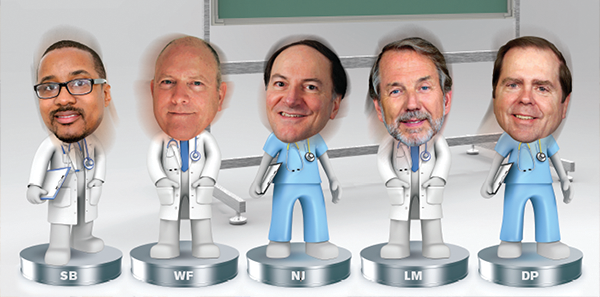
WF: One of the long-running experiments with CEP America is whether or not a group that’s equity-based and where ownership is really strategic in terms of delivering high-quality clinical services, integrating well, expanding across practice lines or medical specialties and across different regions and markets can succeed while operating privately and not accepting outside investment or being tied to short-term financial demands or requirements in order to access capital markets. For us, a culture of ownership, a culture of caring, and the long-term commitment to satisfying careers essentially mean that each of our partners is also our investment banker. What we believe to be important is that this allows us to make strategic plans that are long term in nature, and we’re not at the mercy of a culture, which you actually see in many small democratic groups, where it’s me here and now, “What’s my hourly? What’s my paycheck? What’s my bonus this year?” I think the way individual groups, with all kinds of structures, think about ownership, equity, and investment within each other and their community is really crucial. I think that’s what Nick is pointing out and, in his own way, Lynn as well. Our belief in CEP is that it’s not so much that we’re a democracy that makes us likely to be one of those winners that Lynn was talking about but that we have the ability to think long term and to be able to operate privately and still achieve scale, have success with integration, and have our model make as much sense for anesthesiologists or physicians practicing in nursing homes as it does for PIT doctors in the emergency department. We think all those things are important; we see it as an incredible challenge, and it gets tougher every day. One of the features of many successful long-term investors—Warren Buffett is a classic example—is the ability to be patient, methodical, principled, and think long term. One of my favorite quotes from Warren is, “If you want to get rich, it’s better if you’re not in a hurry.” The other I’ll throw in is that I still think in many ways Winston Churchill was right when he said, “Democracy is the worst form of governance possible except for all the others.” I think partners like Savoy and I, with all the challenges we face inside CEP, believe that. Every day is a challenge for us to demonstrate that it’s still true that democracy is the best way forward.
Explore This Issue
ACEP Now: Vol 34 – No 11 – November 2015I think that eventually the health care environment will show its cards, and you will see, from different regions of the country, those pressures will either make these independent democratic practices look for other options or be able to remain viable. —Savoy Brummer, MD, FACEP
One of the features of many successful long-term investors—Warren Buffett is a classic example—is the ability to be patient, methodical, principled, and think long term. —Wesley Fields, MD, FACEP
Perfection is in the eye of the beholder. What works for one graduate is inappropriate for another, and this idealized vision that you’re going to get to vote on everything or get 100 percent bonus every single day just doesn’t exist. —Nicholas J. Jouriles, MD, FACEP
LM: Investing can mean a lot of things. Investing can mean spending money on physician leadership development. Investment can mean spending money on risk-management programs that aren’t really going to save you money until one, two, or three years down the road. Investment could be IT investments, which increasingly all of us are having to make or are choosing to make because we don’t want to have to wait for the hospital or the payer to tell us how well or how badly we’re doing in a particular area. I think groups of many different kinds can make those investments. Envision and TeamHealth are both public companies, and sometimes there may be the perspective that it must be all about this quarter. Well, I can tell you, and I suspect Dighton can tell you, we invest a boatload of money that’s not going to generate anything except a negative in a given quarter in service of having a better organization for the long term. I’m confident that groups like CEP make those same kinds of investments in people, education, risk management, and IT. I suspect none of us enjoys some of those investments in terms of the costs, especially in IT. It’s hard even for a highly motivated, smaller democratic group to make those same investments. Perhaps that’s why some of those smaller democratic groups are coming together and coalescing in some interesting ways. There are a lot of issues here about democracy and scale. I just don’t think even a democratic group can afford not to invest in somebody in that group spending a disproportionate amount of time thinking about the business side of the business. One of the sisters here, years ago when the sisters were actually running the hospital, said to me, “There is no mission if there is no money,” and it’s OK to talk about the money sometimes. Whether it’s managed care contracting or investing in IT, every one of us has to be thinking about making some of those long-term investments, and it’s just harder in some places than others.





No Responses to “Emergency Medicine Leaders Discuss How Democratic Groups Manage Scale, Consolidation”